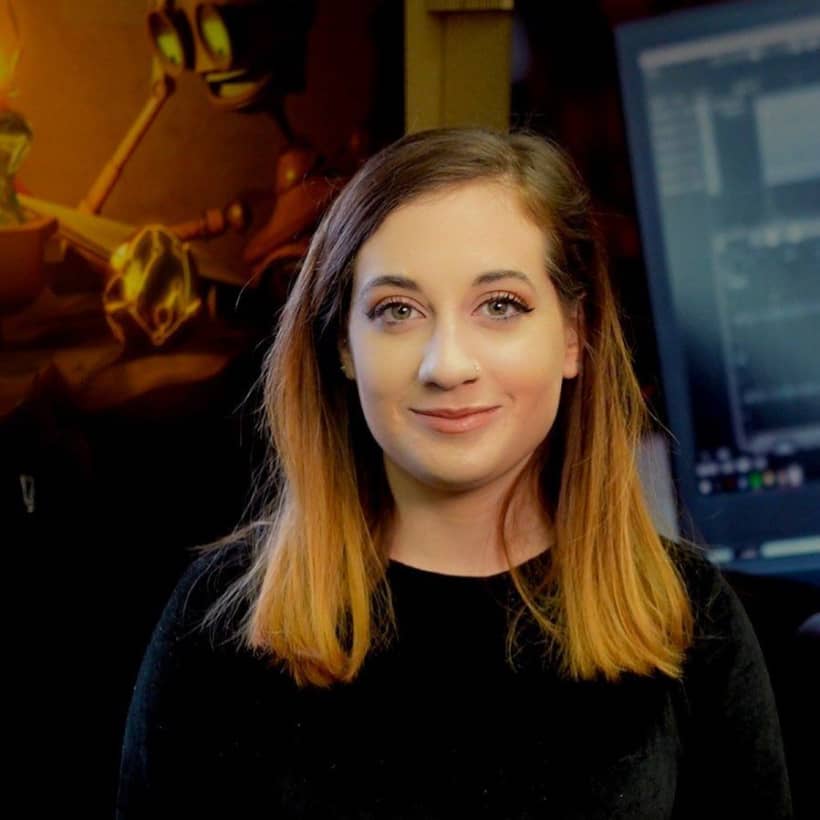When American national Allie Weis moved to Belgium, she only intended to stay in Flanders for the duration of her grant period. After stints in Bruges and Ghent she now lives and works in Kortrijk, and she’s already going on her fourth year in Flanders.
My moment of panic was very short-lived, thanks to me getting super involved in my community and staying busy

Why did you choose to move and to live in Flanders?
I was lucky enough to receive a Fulbright English Teaching Assistantship grant, which allowed me to teach English at Howest Hogeschool in Brugge and Kortrijk (primarily, in Psychology/Communications/Social Work in my first year, and then later within Digital Arts and Entertainment – DAE). I applied for the grant only knowing that – if awarded it – I would be placed somewhere in Belgium, so I really had no expectations or prior knowledge before pre-departure. However, I was ecstatic to be placed in Flanders as I had previously completed an exchange programme at KU Leuven and completed a teaching internship at a secondary school there, so the opportunity to return to the classroom in Flanders really excited me.
I originally only intended to stay in Flanders for the duration of my grant period (one year, more or less), though my grant was extended for a second year – and I was then hired at DAE. I lived in Brugge during my first year, then Gent during my second, and now in Kortrijk and already going on my fourth year in Flanders. It’s safe to say it’s been an adventure!
What was your biggest fear about taking the step to another country/part of the world?
I was definitely most hesitant about leaving my family (and dogs, I’m going to be honest here!) behind. Other familiarities weren’t too much of my concern, and I luckily already had a basic understanding of the Dutch language, though the idea of being completely on my own – an ocean removed from my family – did scare me at times. I remember the first night here vividly; I hadn’t yet secured a place to live because landlords took issue with me still being in the U.S. while searching for a place, so I was staying at an Airbnb for a short period of time. I was having a great time, and clearly the adrenaline was still rushing through my body, when all of a sudden it hit me that I was here, I was actually doing this. And I was alone. I’ll never forget that panic that set in. Honestly though, after three years living here, I haven’t felt that panic since. It was very short-lived, thanks to me getting super involved in my community and staying busy – and of course, still (virtually) connected to my family and loved ones.
How were you received in Flanders? How did this reception go?
Honestly, I consider myself extremely lucky and grateful. My transition to life in Belgium and to work at Howest went somewhat seamlessly, and I quickly felt at home. I have both the Fulbright Association and Howest to thank for this. Of course, there were moments where I felt lost within conversations that were primarily Flemish, or I felt weird/felt like I was sticking out of the crowd due to my overenthusiastic and bubbly nature (this, probably the most prominent), though those feelings always come and go with time.
Did you easily find your way to the various administrative services to work eg? Possibility to rent/buy a home?
Finding an accommodation went well for me – in both Gent and in Kortrijk, where I live now – though it was rather difficult during my first year in Brugge. As I mentioned earlier, landlords were very hesitant to meet with me while I was searching and still in the U.S. I arrived in Belgium without an accommodation, and was extremely lucky that the landlord that I had been emailing over the summer ended up answering me with a free room a few days later. Other than that, things went smoothly.
In terms of working in Flanders, I was lucky enough to already be placed at Howest due to my Fulbright grant (2019-2021). The process for a non-EU to work and live in Flanders can be quite complicated and difficult, though I’ve been lucky enough to receive a contract and work permit since 2021.
Do you have any advice for Flanders with regard to the reception policy?
Honestly, I can’t think of any! I was really impressed by the resources provided to me (CVO schooling for language, integration lessons, etc.).